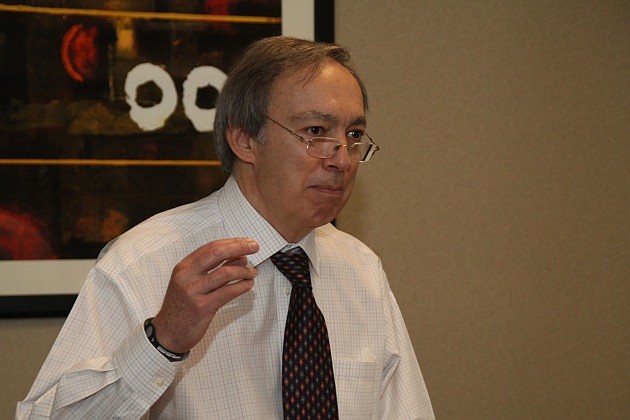- July 26, 2024
-
-
Loading

Loading

Florida is starting to look good again for real estate investors.
Insurance companies, real estate investment trusts, private-equity and other institutional investors are scouting opportunities around the state, say experts who gathered to discuss capital markets at an Urban Land Institute meeting in Fort Myers recently.
“In the next three to six months, somebody's going to ring the bell that we're around the bottom,” says Steve Blank, the institute's senior fellow for finance.
Unlike the previous real estate downturn of the early 1990s, however, there is no central authority like the Resolution Trust Corp. to dump distressed assets on the market. Instead, investors will have to seek out and compete for each deal individually. “It's going to be guerilla warfare,” says Mike Moser, the CEO of Starwood Land Ventures, based in Lakewood Ranch.
The recovery in real estate combined with capital chasing deals could boost values in markets such as Orlando and Tampa. “We think price increases are coming in those employment markets in the next 12 to 18 months,” says Moser. Already, affluent retirement areas such as Palm Beach and Naples are seeing values increase, he notes.
Even commercial banks are getting into real estate lending again. Banks have been recapitalized and are starting to lend, albeit with much stricter underwriting standards.
Mark Peterson, a commercial real estate lender with Bank of America, says his bank is financing shopping centers anchored by grocery stores and apartments. Peterson says he has recently fielded more calls about proposed hotels, too.
On the residential real estate front, private capital is financing builder models and speculative homes, says Tim Byal, vice president of finance for Miromar Development.
Family trusts and high-net-worth individuals are worth cultivating for financing deals, echoed Rocco Ferrera, chief investment officer for Stiles Corp. in Fort Lauderdale. Ferrera and others say annual percentage investment returns in the mid-teens are now more likely, down from the 20% range a few years ago.
Meanwhile, publicly traded real estate companies and insurance companies are in better shape to make acquisitions, says Blank. Real estate investment trusts have reduced leverage, raised capital and cut expenses. “We're starting to see the insurers come back, but they're not going to save us,” says Blank.
Challenges remain, however. For example, by 2017, another $545 billion in commercial real estate loans nationally will mature. And it's not clear how the regulators will reform Fannie Mae and Freddie Mac, the government-owned mortgage companies that were the source of the real estate debacle. “It's going to take a long time to sort this out,” Blank says.
Meanwhile, community development debt that financed large projects in the past is still dormant. In the most recent boom, the larger holder of such debt was Goldman Sachs, says investment banker Doug Sealy of Prager, Sealy & Co. The next cycle is unlikely to see the same players. “It's going to take another lender base,” he predicts.